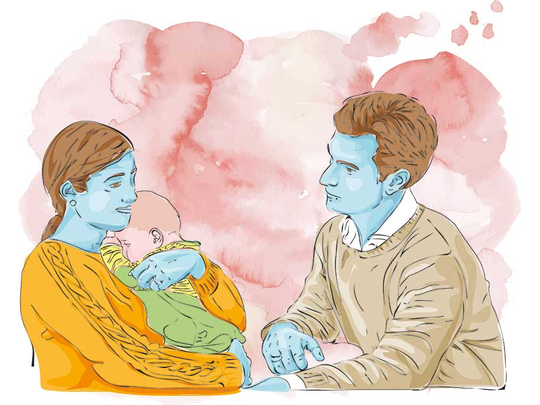
Maartje Suijskens, Counselling Psychologist at The Priory Wellbeing Centre, Dubai, highlights the essential differences between Post Natal Depression faced by new fathers as compared to new mothers.
1. “New dads often exhibit less sadness, crying, and outward emotional symptoms than new mums. New dads with post-natal depression can show more risk-taking behaviours, anger, outbursts and violent behavior then before. Also, you can see changes in their concentration and motivational levels at work.” added Suijskens.
2. The father’s personality, social factors, family history and past mental health history can affect his vulnerability to develop depression. Research shows that a strained relationship with their partner during pregnancy is an extra risk factor.
3. The entire family dynamics are impacted if either parent undergoes post-natal depression.
Post-natal depression when triggered in a woman also affects her partner. Research on psychological trauma shows that PND in a woman could be a reaction to a difficult and traumatic birth. The same field of research also shows that partners and family members of affected can suffer secondary traumatisation. This could be an important factor in the reason why partners can develop PND.
4. New research shows that dads’ hormones shift too, after birth of baby. Their testosterone levels go down and estrogen levels go up. Increased levels of estrogen make them feel more emotional and low levels of testosterone are associated with depression in men.
5. Studies have shown that fathers also appear to be more likely to suffer from depression three to six months after their baby is born. This is usually later than mothers’ PND and often after the time when the mother has recovered from delivery and is going back to work. Questions of who does what and when become complicated.
6. The hormonal changes in men after the birth of their baby may account, at least in part, for a depressed mood. Men often experience disrupted sleep after their baby is born and may find their routine is significantly altered. At the same time, they may feel a great financial responsibility for their child and partner and may experience high levels of stress as a result. This is particularly true in a place such as Dubai where many families are separated from their natural support networks and may also be financially responsible for family members in their country of origin.
7. Men often feel unsure of how to help out after the birth of their baby and may feel that they do not have the opportunity to bond with it. This, along with changes and stresses in their relationship with their wife, can be quite difficult and often contrary to what they had envisaged or wished for. A previous diagnosis of depression or other mental illness is another factor that puts men at risk of developing post-natal depression.








